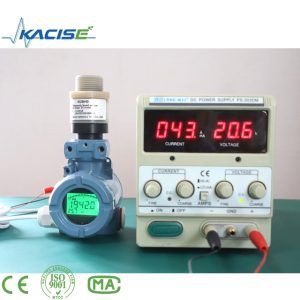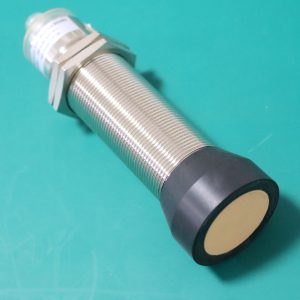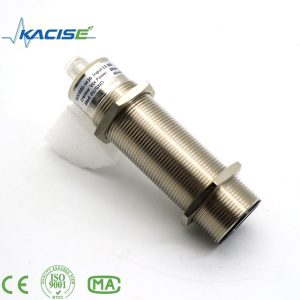KUS3000 Series Ultrasonic Transmitter
General specifications
| M18 | |
| Sensing range | 100…1000mm |
| Adjustment range | 100….1000mm |
| Unusable area | 0 … 100 mm |
| Standard target plate | 100mm x 100mm |
| Transducer frequency | approx.220kHz |
| Response delay | approx. 10 ms |
| M30-type1 | |
| Sensing range | 200…2000mm |
| Adjustment range | 200….2000mm |
| Unusable area | 0 … 200 mm |
| Standard target plate | 100mm x 100mm |
| Transducer frequency | approx.150kHz |
| Response delay | approx. 10 ms |
| M30-type2 | |
| Sensing range | 200…3000mm |
| Adjustment range | 200….3000mm |
| Unusable area | 0 … 150 mm |
| Standard target plate | 100mm x 100mm |
| Transducer frequency | approx.70kHz |
| Response delay | approx. 20 ms |
| M30-type3 | |
| Sensing range | 400… 6000 mm |
| Adjustment range | 400….6000mm |
| Unusable area | 0 … 300 mm |
| Standard target plate | 100mm x 100mm |
| Transducer frequency | approx.50kHz |
| Response delay | approx. 40 ms |
Indicators /operating means
| LED blue | Flashing :program can be acted, this status
The Blue led will flash around 5 minutes after the sensor power on, that indicate the sensor can be programmed, and then the blue led will perpetually turn on. To indicate the power status. |
| LED yellow | indication of the switching state
flashing: during program function object detected |
| LED red | Normal working: light on indicate error detected.
Programing: flashing, echo lost, that means the sensor covered or no object in the fromt of the sensor, |
Electrical specifications
| Operating voltage UB | 13 … 30 V DC , ripple 10 %SS |
| No-load supply current I0 | ≤ 45 mA |
KUS3000 Series Ultrasonic Transmitter Input
| Input type | 1 TEACH-IN input |
| operating range A1: 0V/GND … 1 V, operating range A2: 6 V …
UB |
|
| input impedance: > 4.7 kΩ ; TEACH-IN program pulse: ≥ 1 s |
KUS3000 Series Ultrasonic Transmitter Output
| Output type | 1 switch output E4, NPN NO/NC, programmable
2 switch output E4, PNP NO/NC, programmable 3 Analog 0-10V output E4 programmable. 4 Analog 4-20mA output E4 programmable 5 RS485 output E4 programmable. |
| Rated operating current Ie | 200 mA , short-circuit/overload protected |
| Default setting | Switching point A1: 150mm Switching point A2: 1000mm |
| Voltage drop | ≤ 2.5V |
| Repeat accuracy | ≤1 % |
| Switching frequency f | ≤ 13 Hz(customized for high frequency version) |
| Range hysteresis H | 5 % of the set operating distance |
| Temperature influence | ±1.5% of full-scale value |
KUS3000 Series Ultrasonic Transmitter Ambient conditions
| ambient temperature | -25…70℃(248…343K) |
| Storage temperature | -40…85℃(233…358K) |
KUS3000 Series Ultrasonic Transmitter Mechanical specifications
| Connection | V1 connector(M12×1),4-pin |
| Protection degree | IP67 |
| Material Housing | brass, nickel-plated |
| Transducer | epoxy resin/hollow glass sphere mixture;
foam polyurethane, cover PBT |
Description of Ultrasonic Transmitter Functions
A adjusting the switching points and the analog output.
And the switch output type and analog output type sensor can be programmed as the user want.
There are 8 types of output functions can be programmed.
All the teach routine as follows,
First step, teach one point with the related teach in condition(High level voltage or GND). Second step, choose a different distance(not the same with step1) point and a different teach in condition(not same with the step1). The program routine must be finished during the blue led flashing, the default value will be efficient if the not.
The ultrasonic sensor features a switch output with two teachable switching points. These are set by applying the supply voltage – UB or UB to the TEACH-IN input. The supply voltage must be applied to the TEACH-IN input for at least 1 s . LEDs indicate whether the sensor has recognized the target during the TEACH-IN procedure. Switching point A1 is taught with – UB, A2 with UB. Five different output functions can be set.
- Window mode normally-open and liner mode positive slope output function.
- Window mode normally-closed and liner mode negative slope output function.
- Single switching point, normally-open function.
- Single switching point, normally-closed function.
- Single switch point with hysteresis gap normally-open function.
- Single switch point with hysteresis gap normally-closed function.
- Detection of object presence-normal open function.
- Detection of object presence-closed open function.
Switching point, Setting distance only after power on. Because the internal clock assures it can’t be changed 5 minutes after power on, so if want to change the switching point, the user can only set the request distance after power restart.
For the RS485 output type.
There is 2 kinds of working style,
One for auto measure, the sensor will measure the distance or level repeatedly, and the measurement period can be set by the uart. The measure result can be fetched every time.
The other style is power save mode when the sensor is sleep, until the sensor received the inquiry command with pre-code. Communication protocol is Modus-RTU.
For example the measure result can be read by access the register 0x101 by Modbus protocol.
For more information please contact us for the software engineering guide.
| LED displays | |||
| programming time | working time | ||
| Red LED | ON | — | Error accured |
| OFF | Working well | Working well | |
| Flash | Doing the echo lost program,
For Single switching point, program, or Detection of object. |
—– | |
| Yellow LED | ON | —- | Object detacted |
| OFF | —— | Echo lost | |
| Flash | Teach in for the status ready,
That means the sensor has locked the set distance for program |
—– | |
| Blue LED | ON | Power on | Power on |
| OFF | Power off | Power off | |
| Flash | Program period indication,
Only the blue led flashes the program routine can be done |
Program can be carried on | |
Appendix:
Influence of Side Lobe Effect on Ultrasonic Sensor Installation














